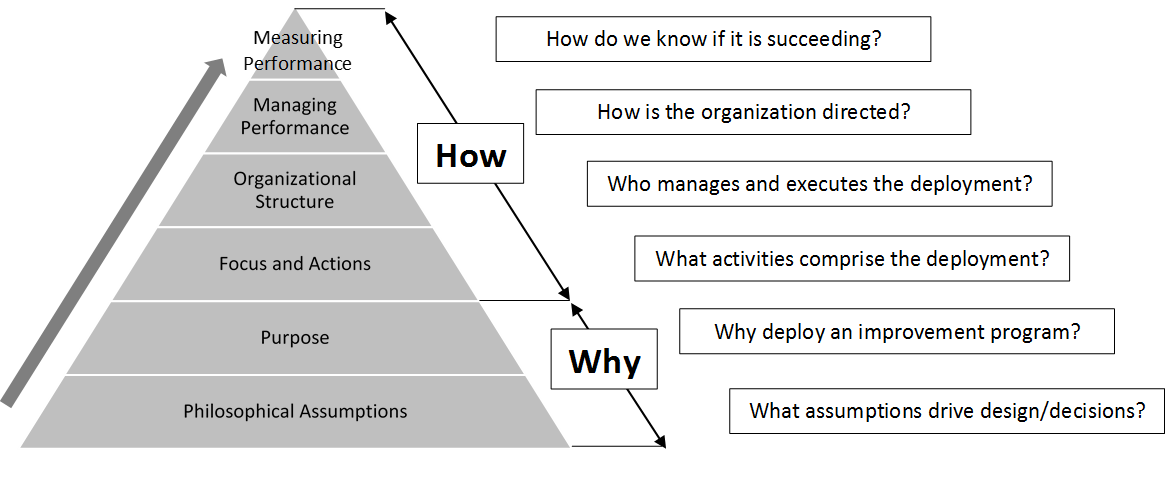The Six Key Components of a Successful Operational Excellence Deployment
A successful operational excellence deployment does not occur naturally. Instead, Executives who succeed understand that OpEx deployments must be designed with principle and managed with purpose.
Even in the face of these facts, Executives often respond by saying “I understand what has worked for others in the past, but our company and industry are unique. The rules are different here“. While every company does face unique challenges, the essentials of what will make any deployment successful are identical.
Specifically, there are six components to all successful operational excellence deployments.
6 Key Components of a Successful Operational Excellence Deployment
- Philosophical Assumptions
- Deployment Purpose
- Focus and Actions
- Organizational Structure
- Method of Managing Performance
- Method of Measuring Performance
These six components provide clear answers to the key questions of “Why Deploy an OpEx program?” and “How will the deployment be structured and managed.” The answers to these questions set the direction in which your program will proceed.
We have depicted these components as a pyramid. In reality, these components act as a system. Each component plays a role in the deployment and management of the program. The long-term success of your OpEx deployment will be determined by how well you design your Operational Excellence program to fulfill each level of the pyramid.
6 Key Components of a Successful Operational Excellence Deployment

In our practice we lead Executives through the process of designing a customized deployment by challenging them to define each key component of the pyramid in series, starting at the base with the Philosophical Assumptions. As Executives proceed through this process, they test their assumptions and in turn strengthen their understanding of what is required to be successful and how it can be achieved in their company.
The Perspective of the Deployment Executive
How you think about your role as the Executive leading the Deployment is critical. A metaphor that resonates is to think of yourself as the captain of a sailing ship tasked with leading an expedition to find new trade routes that will allow your country to prosper. In practical terms, this metaphor is realistic to the challenge that you face as an Executive. Leading an organization through the process of transformation is extremely challenging, however, if done well it will empower every employee to be more productive and engaged.
In the example of the Deployment Executive as a ship captain…
- The philosophical assumptions are the compass that will define what decisions you make and how you will respond to any challenges you face
- The purpose tells you where you are going when you need to get there, and what you need to accomplish
- The focus and actions tell you exactly what must be done to prepare and make the trip
- The organization structure defines who will plan the trip, who will manage the crew, who will navigate, etc.
- Managing performance is how the people responsible will ensure you arrive on time
- The measuring performance is your north star, telling you how progress will be evaluated throughout the trip
Additionally, as any new Captain setting sail quickly realizes, once you leave the safe confines of the harbor one’s theoretical ideals and plans are immediately and constantly challenged by the uncompromising harshness of reality. The way to survive is to be prepared and agile to respond to the challenges that await. Only those who have created a comprehensive structure and strategy founded on the six key components and that avoid the 10 common reasons for deployment failure will be prepared to meet those challenges.




